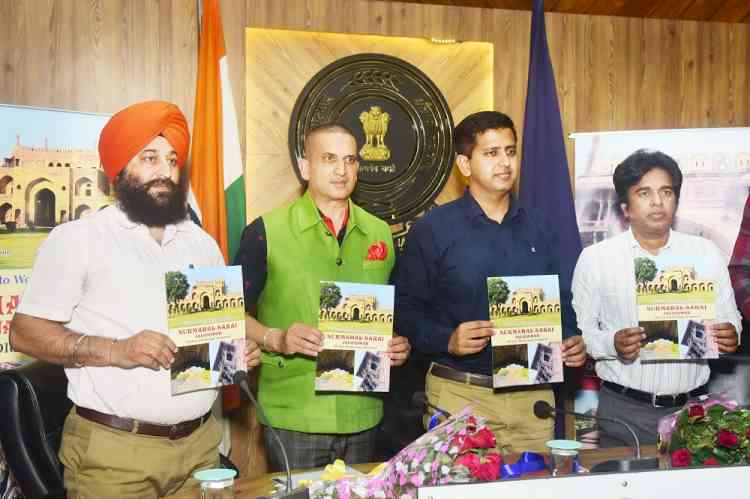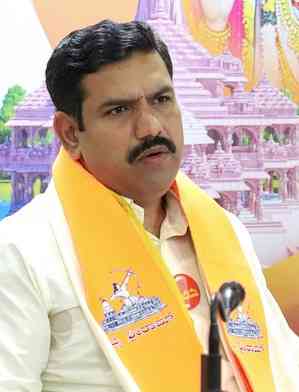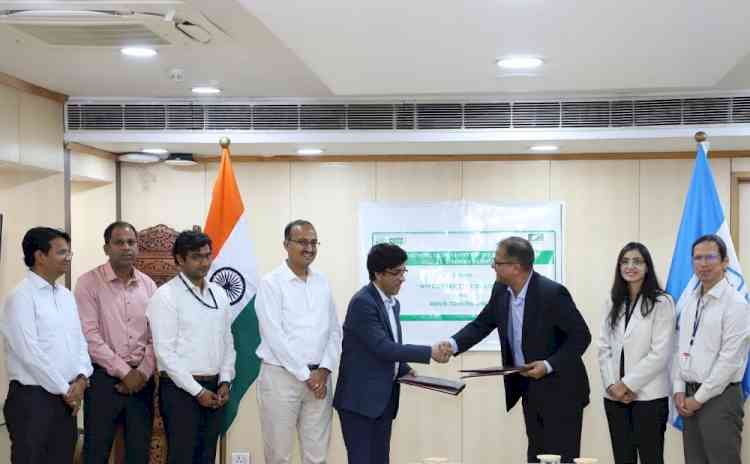QUESTION MARK: Toll Plaza Bridge on Sutluj River cheating with toll road users
Author(s): Harish K. MongaFerozepur, October 24, 2012: An incident of alleged cheating by the Toll Plaza at the bridge recently constructed on Sutluj River, connecting Ferozepur-Jalandhar which was earlier connected with a joint rail...


Ferozepur, October 24, 2012: An incident of alleged cheating by the Toll Plaza at the bridge recently constructed on Sutluj River, connecting Ferozepur-Jalandhar which was earlier connected with a joint rail and road track, has come to light.
A frequent toll user, Jatinderjit Sikri said, “At Toll Plaza Bridge on Satluj River , Rs.47 are charged for one side and the toll users are being cheated for Rs.3 if Rs.50 denomination note is given. The other way of cheating is if Rs.100 note is given, in return, in haste, only the receipt and coins of Rs.3 or in kind toffees are returned, siphoning off Rs.50”.
He further said, at toll plaza point, everyone is in a hurry to reach at the destination and in haste, cheating with the road users is easy and if pointed out, even after crossing the barricade, the excess amount charged is returned without any fuss.
He however raised the questions, “Why should toll tax be imposed on vehicle users when they have already paid road tax? Instead of subjecting people to inconvenience by stopping them at every toll tax barrier, would it not be better to increase the road tax at source?”
In fact, a toll road is a privately or publicly built road for which the user of the road is required to pay a fee, or toll. Tolls are a form of user tax that usually pays for the cost of road construction and maintenance without raising taxes on non-users. The tolls are collected as a type of tax for the use of the local government.
The history about toll a road goes like this, a fund starved king decided to toll a road on the advice of his ministers, but was apprehensive of the backlash from the public. Anyhow the financial emergency prevailed and the toll of Rs one per vehicle was put in place, to be revoked if the people disapproved of it. People started paying and moving without a complaint. Mused over the ease of collection, the king increased the toll to Rs 2, then to Rs 3 and ultimately to Rs 10 in a short span of time, but no one protested.
Surprised over the resilience of the people, the king decided to test their patience further and ordered that after collecting the toll, each passerby be given 10 lashes also. Even after this, when the people kept mum, the king sent his detectives to know their feelings. The feedback he got was the demand to increase the number of lashers, as time wastage was unaffordable. Same is the situation of travellers today.
Ashok Bajaj (Retd ITO) Vice President, NGOs when contacted said, “In all fairness, the toll tax should be abolished which would resultantly give monetary relief to the common man and avoid wastage of time at toll plazas. If the governments at the Centre and the states find it difficult to maintain roads, then new tax may be invented and levied on owners of vehicles”.

 cityairnews
cityairnews 

















